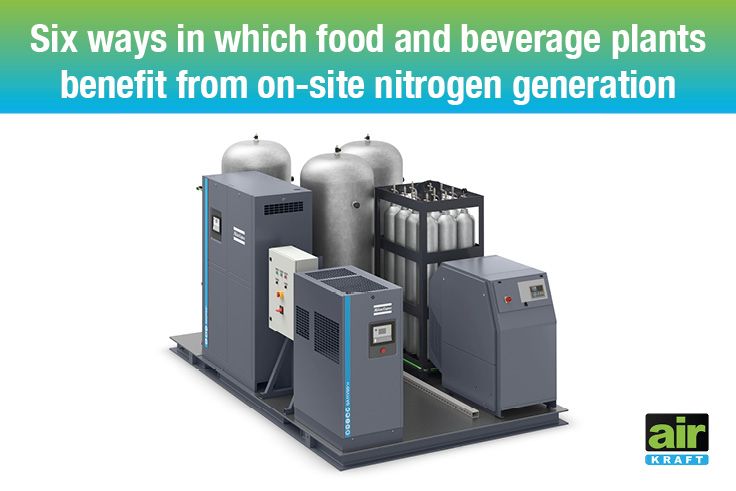Benefits Of On-Site Nitrogen Generation For Food And Beverage Plants
Benefits Of On-Site Nitrogen Generation For Food And Beverage Plants
Six ways in which food and beverage plants benefit from on-site nitrogen generation
Traditionally, companies sourced the required nitrogen for their production processes from external suppliers, delivered in bulky containers that required storage space. Yet, there is a better alternative. On-site nitrogen generation brings a wide array of benefits.
- Cost efficiency: On-site nitrogen generation yields substantial cost savings in the long run. Although theres an initial investment, the cost per unit of gas produced is significantly lower, allowing for quick cost recovery.
- Customised purity: Tailor the purity of the generated nitrogen to suit your specific requirements. While supplied cylinders offer ultra-pure nitrogen, many food and beverage applications dont require such high purity, optimising resource utilisation. Gas quality and gas purity are not the same the former is about the presence of contaminants, such as moisture, oil, and particles, whereas the latter is about the concentration of a gas. In food and beverage production, a high nitrogen quality is crucial, but a high nitrogen purity is not always required.
- Streamlined operations: Eliminate the logistics effort of managing bulky nitrogen cylinders. On-site generation eliminates the need to order cylinders, coordinate deliveries, and allocate storage space, simplifying operational logistics.
- Enhanced safety: Prioritise workplace safety with on-site nitrogen generation. Unlike heavy, pressurised gas cylinders that pose workplace hazards, generating nitrogen on-site is significantly safer, minimising potential risks.
- Continuous supply: Maintain a steady nitrogen supply. Generating your gas on-site guarantees a consistent availability, crucial for the uninterrupted operations of the food and beverage industry, especially during heightened demand.
- Environmental impact: Lower your transportation emissions. On-site generation eliminates the requirement for transporting bulky gas cylinders, contributing to a more environmentally friendly production process.






